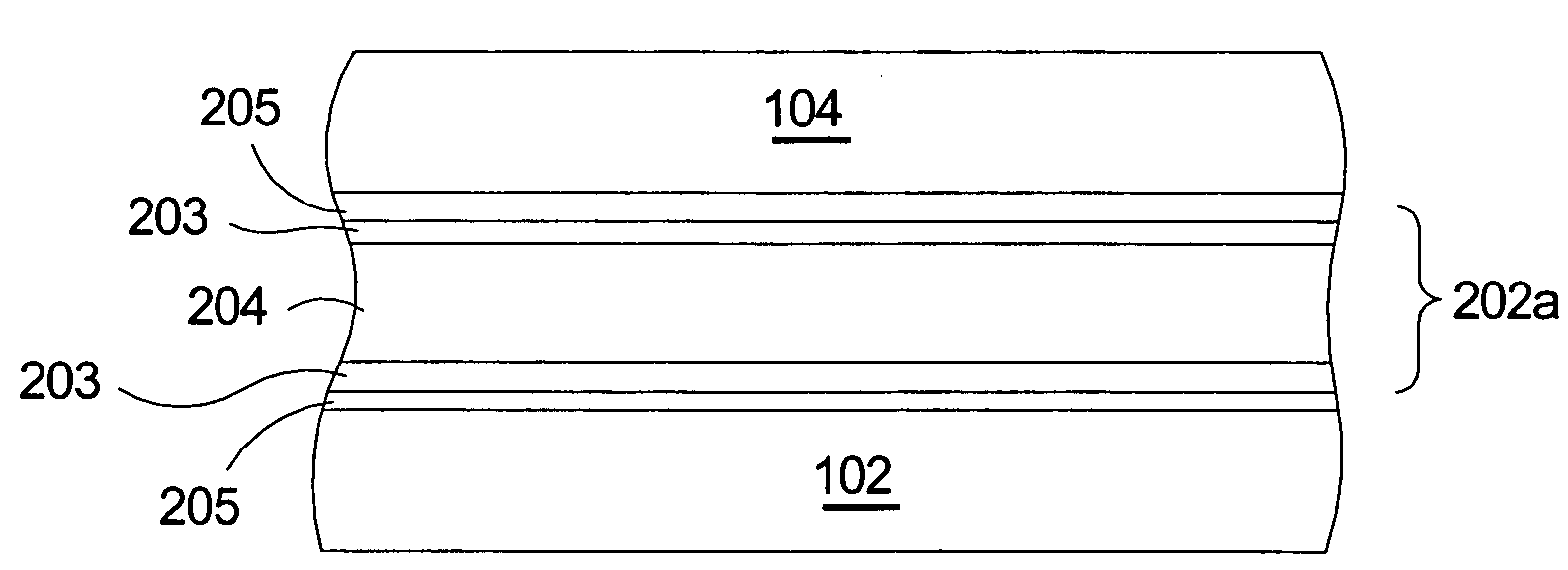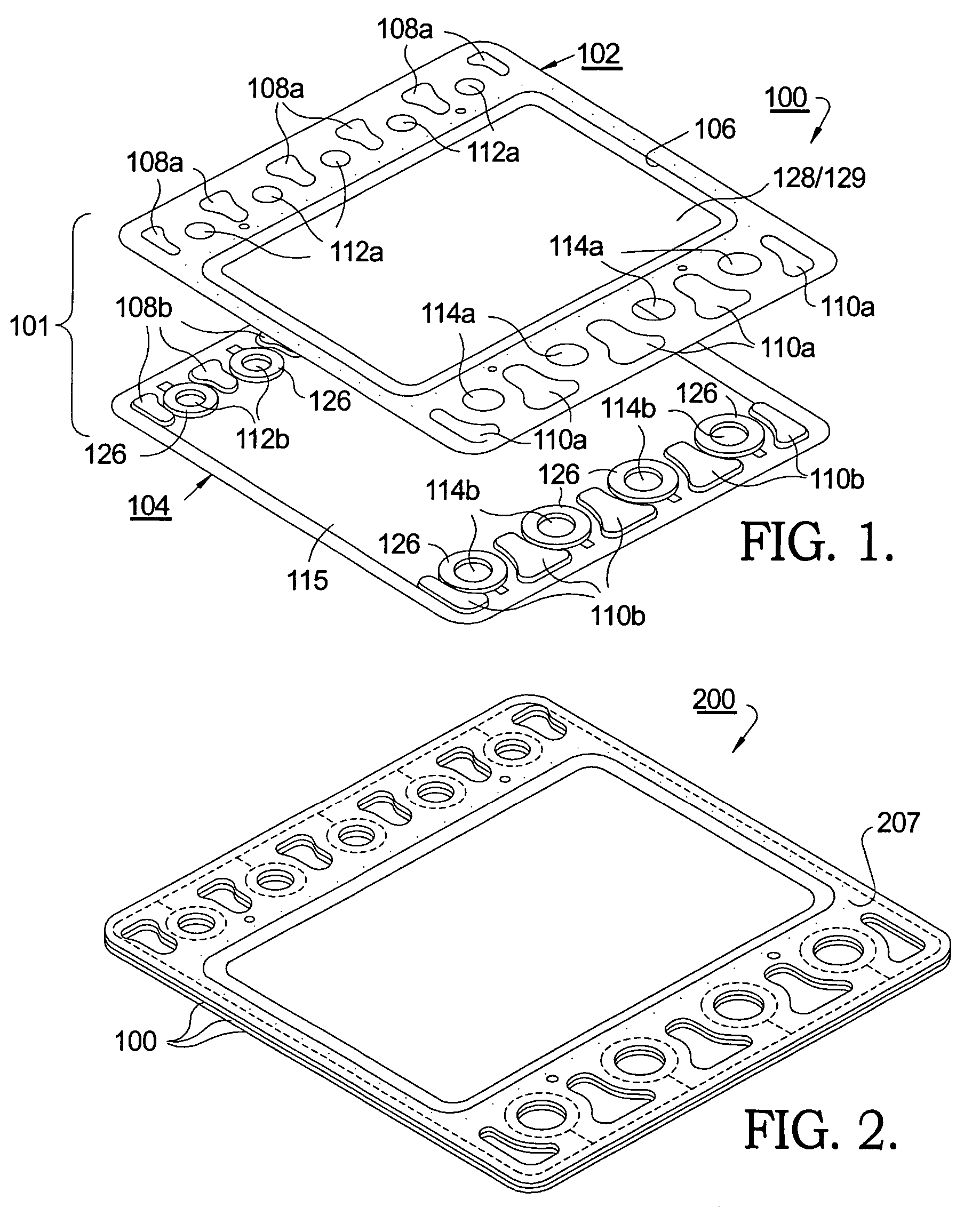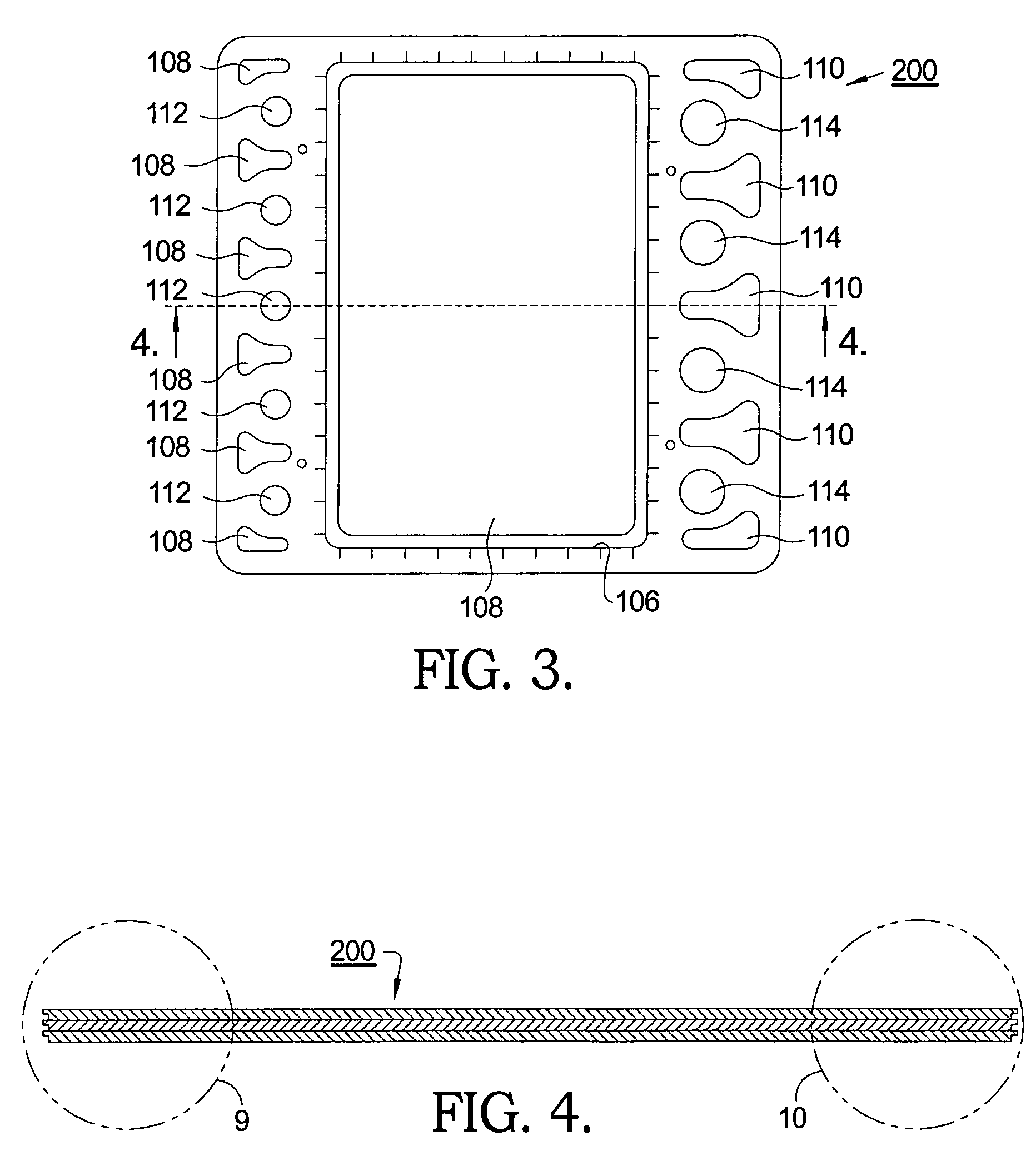Ceramic coatings for insulating modular fuel cell cassettes in a solid-oxide fuel cell stack
a fuel cell cassette and ceramic coating technology, applied in the field of ceramic coatings for insulating modular fuel cell cassettes in solid-oxide fuel cell stacks, can solve the problems of low stability of humidified fuel gas, seal corrosion with time, and known drawbacks of sealants, and achieve the effect of strengthening the adhesion of ceramic coatings
- Summary
- Abstract
- Description
- Claims
- Application Information
AI Technical Summary
Benefits of technology
Problems solved by technology
Method used
Image
Examples
Embodiment Construction
[0034]Referring to FIG. 1, a fuel cell cassette 100 in accordance with the invention includes a cassette housing 101 including a fuel cell mounting plate 102 and a separator plate 104. Mounting plate 102 includes a large central electrode opening 106 for receiving a fuel cell subassembly 128 as described below. Outboard of central electrode opening 106 are cathode air inlets 108a, cathode air outlets 110a, fuel gas inlets 112a, and fuel gas outlets 114a. Separator plate 104 is provided with similar and mating air and fuel openings 108b, 110b, 112b, and 114b, respectively. Separator plate 104 is formed as a shallow tray 115 such that a cavity is created between plates 102,104 for receiving fuel cell components and fuel gas as described below. Preferably, the mounting and separator plates are formed as by stamping or drawing from thin sheet stock (0.1 to 1.0 mm) of a ferritic stainless steel, such as Crofer 22, although other materials such as austenitic stainless steel or high temper...
PUM
| Property | Measurement | Unit |
|---|---|---|
| volume fraction | aaaaa | aaaaa |
| temperatures | aaaaa | aaaaa |
| temperature | aaaaa | aaaaa |
Abstract
Description
Claims
Application Information
 Login to View More
Login to View More - R&D
- Intellectual Property
- Life Sciences
- Materials
- Tech Scout
- Unparalleled Data Quality
- Higher Quality Content
- 60% Fewer Hallucinations
Browse by: Latest US Patents, China's latest patents, Technical Efficacy Thesaurus, Application Domain, Technology Topic, Popular Technical Reports.
© 2025 PatSnap. All rights reserved.Legal|Privacy policy|Modern Slavery Act Transparency Statement|Sitemap|About US| Contact US: help@patsnap.com



